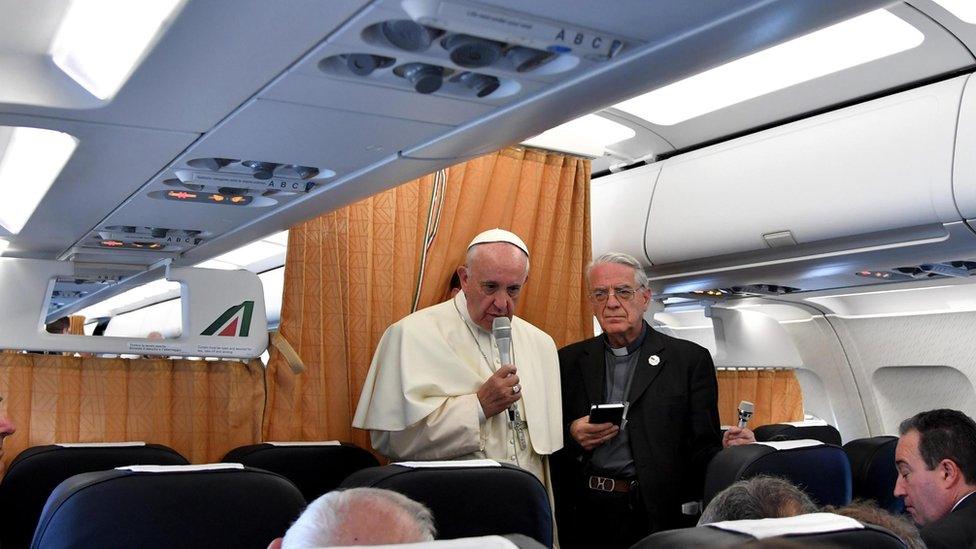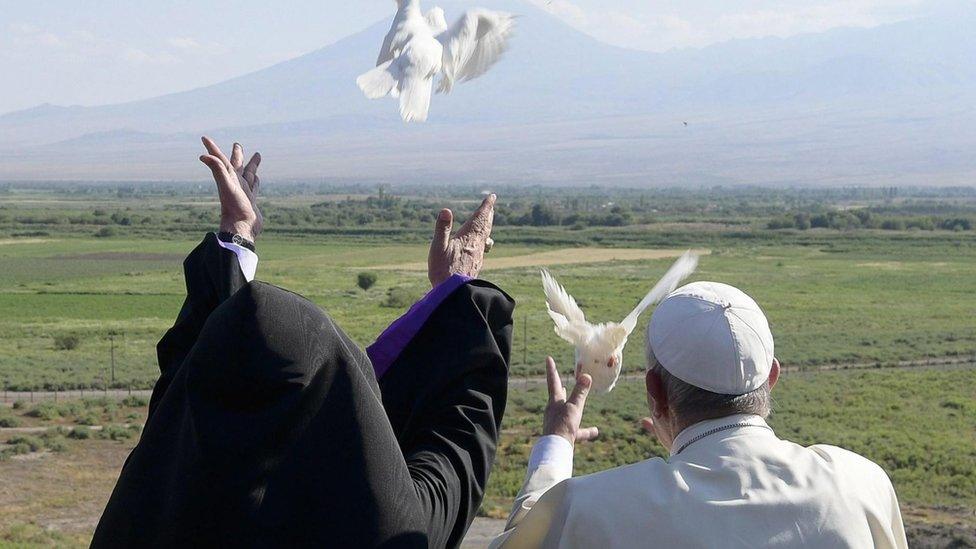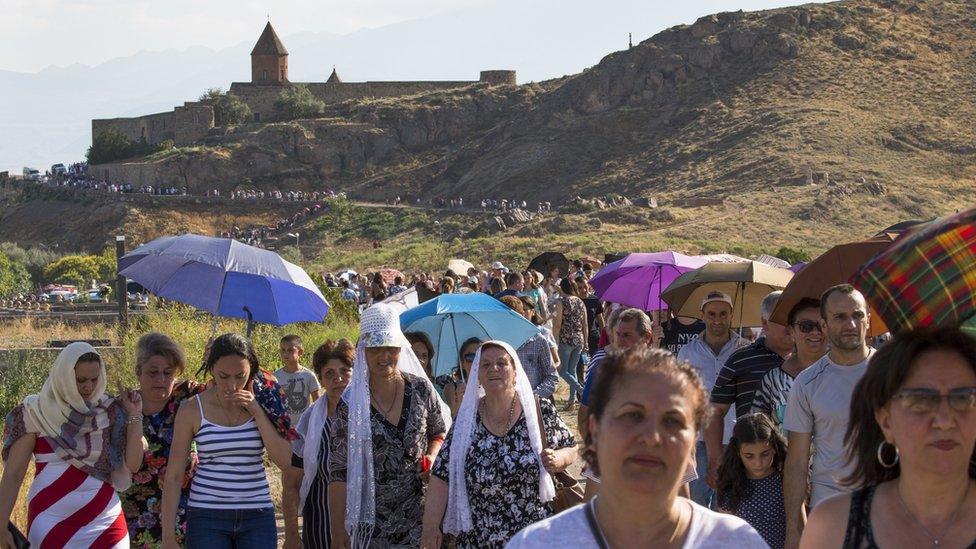Pope Francis says Church should apologise to gay people
- Published

Pope Francis, flanked by Vatican spokesman Federico Lombardi, addressed journalists on the flight back from Armenia
Pope Francis has said that the Roman Catholic Church should apologise to gay people for the way it has treated them.
He told reporters that the Church had no right to judge the gay community, and should show them respect.
The pontiff also said the Church should seek forgiveness from other people it had marginalised - women, the poor, and children forced into labour.
The Pope has been hailed by many in the gay community for his positive attitude towards homosexuals.
But some conservative Catholics have criticised him for making comments they say are ambiguous about sexual morality.
Speaking to reporters on his plane returning from Armenia, the Pope said: "I will repeat what the catechism of the Church says, that they [homosexuals] should not be discriminated against, that they should be respected, accompanied pastorally."
Pope Francis said the Church should seek forgiveness from those whom it had marginalised.

The Pope and Armenian patriarch Catholicos Karekin II released doves of peace near Mt Ararat
"I think that the Church not only should apologise... to a gay person whom it offended but it must also apologise to the poor as well, to the women who have been exploited, to children who have been exploited by [being forced to] work. It must apologise for having blessed so many weapons."
In 2013, Pope Francis reaffirmed the Roman Catholic Church's position that homosexual acts were sinful, but homosexual orientation was not.
"If a person is gay and seeks God and has good will, who am I to judge?" he said then.
Pope Francis speaking to journalists about the EU: "Let's not throw the baby out with the bath water"
In other remarks on Sunday, the Pope said he hoped the European Union would be able to recover following the UK's decision to leave.
"There is something that is not working in that bulky union, but let's not throw the baby out with the bath water, let's try to jump-start things, to re-create," he said.

Thousands of Armenians travelled to see the Pope during his visit
During his visit to the Armenian capital, Yerevan, the Pope described the mass killing of Armenians under Ottoman Turkish rule in World War One as "genocide".
Turkey has always disputed the numbers killed and angrily rejects the term "genocide".
In response, Turkish deputy prime minister Nurettin Canikli said the Pope's comments were "very unfortunate" adding it was "possible to see all the reflections and traces of crusader mentality in the actions of the papacy".
The Pope's spokesman, Father Federico Lombardi, later told reporters: "The Pope is on no crusade. He is not trying to organise wars or build walls but he wants to build bridges. He has not said a word against the Turkish people."